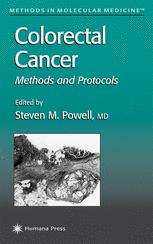

Most ebook files are in PDF format, so you can easily read them using various software such as Foxit Reader or directly on the Google Chrome browser.
Some ebook files are released by publishers in other formats such as .awz, .mobi, .epub, .fb2, etc. You may need to install specific software to read these formats on mobile/PC, such as Calibre.
Please read the tutorial at this link: https://ebookbell.com/faq
We offer FREE conversion to the popular formats you request; however, this may take some time. Therefore, right after payment, please email us, and we will try to provide the service as quickly as possible.
For some exceptional file formats or broken links (if any), please refrain from opening any disputes. Instead, email us first, and we will try to assist within a maximum of 6 hours.
EbookBell Team

0.0
0 reviewsColorectal cancer is a common and highly lethal cancer once spread whose treatment is improving as we gain a better understanding of its development. In Colorectal Cancer: Methods and Protocols, Steven M. Powell, MD, has assembled a hands-on collection of cutting-edge molecular methods for studying this solid tumor. These readily reproducible techniques range from gross microdissection of specimens to specific molecular analyses. Here both the novice and experienced researcher will find productive chromosomal analyses, including comparative genomic hybridization and FISH assays, and revealing gene expression analyses, including immunohistochemical assays, Western blotting, and microarray assays. Also presented are mutational analyses of colon tumors and blood samples to determine whether specific patients have inherited a significant predisposition to colorectal cancer. Each method is described in step-by-step detail by an established expert to ensure robust experimental results, and all are accompanied by detailed notes on pitfalls to avoid.
Eminently practical, with each technique presented as if the expert in the field who had perfected it were guiding the investigator, Colorectal Cancer: Methods and Protocols provides cancer investigators with a gold standard collection of all the key genetic, cellular, and molecular biological methods for analyzing colon cancer today.